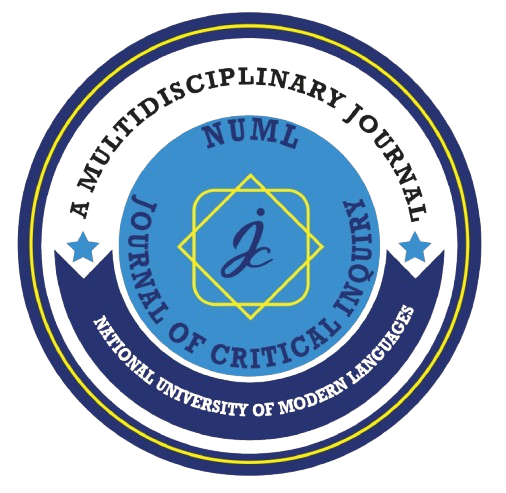Surviving the Edges of Periphery: A Postcolonial Feminist critique of Mohammed Hanif’s Our Lady of Alice Bhatti
Main Article Content
Abstract
Pakistani postcolonial narratives have been discussing the oppression of the less privileged sections of people, including minorities, because of the predetermined power structure of society. The level of oppression gets aggravated in its severity and repercussions when the narrative is about a woman from a minority community in Pakistan. Mohammad Hanif’s novel Our Lady of Alice Bhatti highlights the portrayal of a female protagonist who faces life's challenges only because she is a woman from a Christian minority. Her struggle to survive meets utmost resistance from the patriarchal social setup. This problematizes the socio-political situation of women from minority communities and allocates them space for struggle only on the edges of the periphery of social hierarchy in postcolonial states like Pakistan. It necessitates that the text of the novel may be explored to assess the status of doubly colonized oppressed women of minority communities and the consequent resistance put up by them. The study employs a postcolonial lens to examine the life of such women and to determine the extent of consequent oppression and suffering as portrayed by Hanif in his novel. The study finds out that women of minority status in postcolonial states like Pakistan are mostly oppressed and are seldom included in the regular stream of life.






